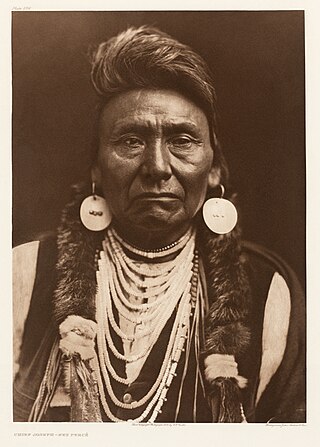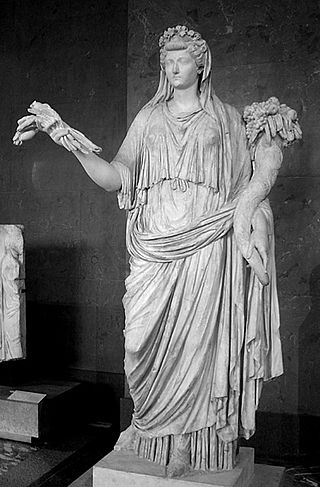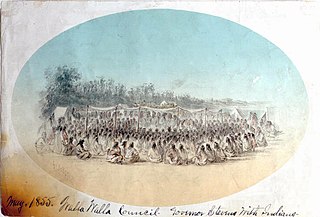See also
- Alyce, a list of people with the given name
- Allyce Beasley (born 1954), American actress and comedienne
- Ellise Chappell (born 1992), English actress
- Ellyse Perry (born 1990), Australian female cricketer and footballer
Ellice is a given name which may refer to:

The Nez Perce are an Indigenous people of the Plateau who still live on a fraction of the lands on the southeastern Columbia River Plateau in the Pacific Northwest. This region has been occupied for at least 11,500 years.

Nez Perce County is a county located in the U.S. state of Idaho. As of the 2020 census, the population was 42,090. The county seat is Lewiston. The county is named after the Native American Nez Perce tribe. Nez Perce County is part of the Lewiston, Idaho–WA Metropolitan Statistical Area.

Lewis County is a county located in the north central region of the U.S. state of Idaho. As of the 2020 census, the population was 3,533, making it the fourth-least populous county in Idaho. The county seat is Nezperce, and Kamiah is the largest city. Partitioned from Nez Perce County and established in 1911, it was named after the explorer Meriwether Lewis. Most of the county is within the Nez Perce Indian Reservation, though Native Americans comprise less than 6% of the county population. Similar to the opening of lands in Oklahoma, the U.S. government opened the reservation for white settlement in November 1895. The proclamation had been signed less than two weeks earlier by President Cleveland.

Hin-mah-too-yah-lat-kekt, popularly known as Chief Joseph, Young Joseph, or Joseph the Younger, was a leader of the wal-lam-wat-kain (Wallowa) band of Nez Perce, a Native American tribe of the interior Pacific Northwest region of the United States, in the latter half of the 19th century. He succeeded his father tuekakas in the early 1870s.
The English surname Percy is of Norman origin, coming from Normandy to England, United Kingdom. It was from the House of Percy, Norman lords of Northumberland, and derives from the village of Percy-en-Auge in Normandy. From there, it came into use as a mostly masculine and rarely feminine given name. It is also a short form of the given name Percival, Perseus, etc.
Cherie is an English female given name. It comes from the French chérie, meaning darling.
Fiona is a feminine given name of Gaelic origins. It means white or fair, the Irish name Fíona means vine. It was coined by Scottish writer William Sharp. Sharp may have drawn inspiration from Celtic variations of the name Catherine. Initially, the name was confined to Scotland but later it gained popularity in other countries, such as Liechtenstein, Switzerland, Australia, Germany and Canada.
Demi is a feminine given name with Greek and Latin roots, and it is a surname with Albanian origins. Demi was originally a nickname of Demetria, the feminine form of the masculine name Demetrius, which is itself the Latin and English spelling of the Greek name Demetrios. People named Demi include:

Patricia is a feminine given name of Latin origin. Derived from the Latin word patrician, meaning 'noble', it is the feminine form of the masculine given name Patrick. Another well-known variant is Patrice.
Pilkington is an English surname. Notable people with the surname include:

The Walla Walla Council (1855) was a meeting in the Pacific Northwest between the United States and sovereign tribal nations of the Cayuse, Nez Perce, Umatilla, Walla Walla, and Yakama. The council occurred on May 29 – June 11; the treaties signed at this council on June 9 were ratified by the U.S. Senate four years later in 1859.
Kennedy, with variant forms O'Kennedy and Kennedie, is a surname of Irish origin that has also been used as a given name.
The Colville people, are a Native American people of the Pacific Northwest. The name Colville comes from association with Fort Colville, named after Andrew Colvile of the Hudson's Bay Company. Earlier, outsiders often called them Scheulpi, Chualpay, or Swhy-ayl-puh; the French traders called them Les Chaudières in reference to Kettle Falls. The neighboring Coeur d'Alene called them Sqhwiyi̱'ɫpmsh and the Spokane knew them as Sxʷyelpetkʷ. Their name in nselxcin, sx̌ʷýʔłpx, refers to "sharp pointed trees".
Clare is a surname of English or Irish origin. The name is most often derived from the titular de Clare first held by Richard fitz Gilbert, a Welsh lord from a Norman family, who took it from Clare, Suffolk. The name is also prevalent among families of Irish origin, both from de Clare and from etymologically unrelated place names such as Clare County, Clare Island and River Clare in Ireland which attests to a long historical relationship with those places.
Ellis or Ellice was a Nez Perce leader. His grandfather was the respected leader Hohots Ilppilp, who met with Lewis and Clark.
Gwynn, Gwynne, Guinn or Gwyn, are given names meaning "white" or/and "blessed" in Welsh and Cornish.
Reilly is an Irish surname, and is derived from the Gaelic Ó Raghallaigh Sept that was based in Counties Cavan and Westmeath. Reilly is among the ten most frequently found surnames in Ireland and although they are very widespread they can be mostly found in the region of the ancestral homeland. The Riley spelling is an anglicized version and not found originally in Ireland.
Alyce is a feminine given name.
Ellis is a unisex given name.

Deirdre is a feminine given name of Celtic origin and of unknown meaning. Deirdre is the name of a tragic heroine of Irish mythology. More attention was drawn to the name during the early 20th Century in Ireland and throughout the Anglosphere after W. B. Yeats published his poem Deirdre in 1907 and playwright J.M. Synge published his play Deirdre of the Sorrows in 1910. There are a number of spelling variants and pronunciations of the name in use.